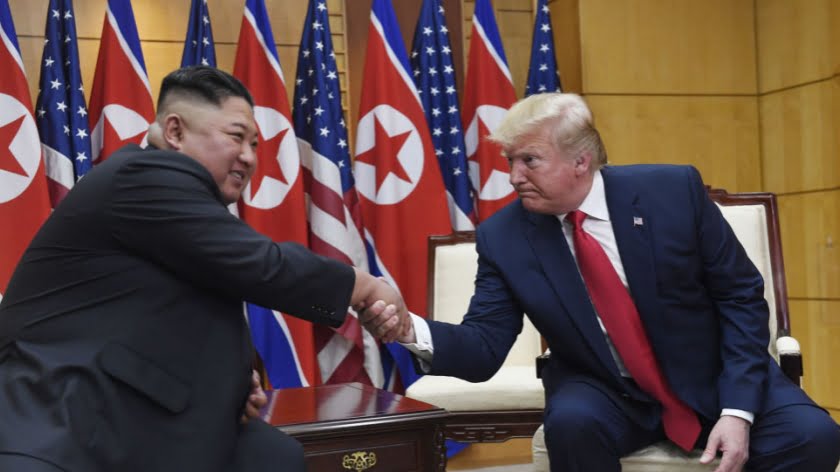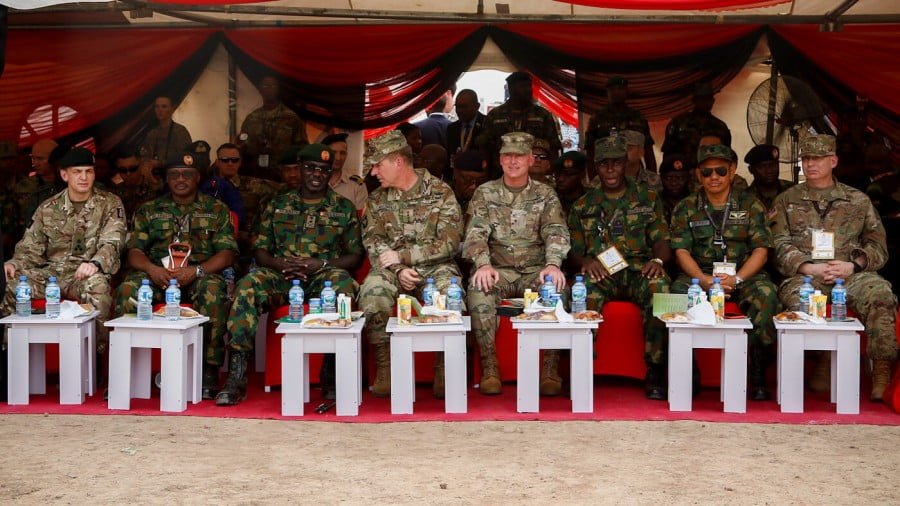How China is Countering US Sanctions
For many years there has been a rivalry between two world superpowers, namely, the United States and China. In recent years, it has developed into an outright struggle, during which the parties use various political and economic instruments against each other. Usually, the sanctions imposed by Washington against its rivals attract the most attention of the world media. However, Beijing also has great capabilities and is not going to leave the attacks of the United States and its allies unanswered.
In 2018, in order to overcome the imbalance in US-Chinese trade, US President Donald Trump imposed large tariffs on some types of Chinese equipment imported into the US. Soon, the PRC took similar measures. Thus, a “trade war” began between the two countries. The USA and China began to raise import customs duties on different goods of each other in turn. Along the way, the United States was accusing China of violating intellectual property rights. The US government’s persecution of Chinese telecommunications companies Huawei and ZTE, manufacturers of wireless communication equipment capable of competing in this strategically important industry for our time with such an American giant as Apple, developed against this background. While accusing the companies of cooperating with Chinese intelligence, in August 2018 Trump has banned the use of their equipment by American government agencies.
In May 2019, Huawei was included in the American list of persons and organizations subject to trade restrictions (Entity List), as a result of which American companies lost the right to cooperate with this Chinese company without special government permission.
In the same month, the Chinese Ministry of Commerce announced the creation of its Unreliable Entity List, which can include individuals and organizations that hinder the economic development of the People’s Republic of China.
In June 2019, protests began in the Hong Kong Special Administrative Region of the People’s Republic of China caused by a draft law on extradition, which, according to the protesters, reduced the degree of autonomy of Hong Kong. The protests received broad ideological support from the Western media. The leadership of the People’s Republic of China excited by what is happening began to develop a draft law on the protection of national security in Hong Kong creating a legal framework for suppressing anti-government activity and separatist sentiments in the area. This caused a new wave of protests, which started in May 2020. Nevertheless, on June 30, 2020, the National Security Law in Hong Kong was adopted, and on July 1 it entered into force. According to this law, support of Hong Kong’s sovereignty from the PRC, terrorism and cooperation with foreign forces for the purpose of violating national security is punishable by imprisonment of up to life imprisonment.
In July 2020, the Trump administration imposed sanctions against a number of high-ranking representatives of the People’s Republic of China, including several members of the Politburo and their closest relatives on charges of human rights violations in the Xinjiang Uygur Autonomous Region of the People’s Republic of China. The sanctions implied a ban on those who fell under them from entering the United States and freezing their American assets. Then in August 2020 came the American response to the adoption of the above National Security Law in Hong Kong. Representatives of the Hong Kong government, who showed loyalty to the leadership of the People’s Republic of China and promoted the adoption of the law, were sanctioned by the US Treasury Department on charges of “undermining democratic processes in Hong Kong.”
In November 2020, D. Trump signed Executive Order 13959 Addressing the Threat From Securities Investments That Finance Communist Chinese Military Companies. The document prohibits all American investors from investing money in the securities of companies that the US Department of Defense considers “communist Chinese military.” At that time, 31 companies were classified as such.
In December 2020, 14 members of the Standing Committee of the National People’s Congress were sanctioned by Washington again on charges of “undermining democracy” in Hong Kong.
According to a number of experts, the Chinese opposition to American pressure was of an administrative nature and needed a legislative framework to become truly effective. This database has been created: On June 10, 2021, the Anti-Foreign Sanctions Law (AFSL) was adopted and entered into force in the People’s Republic of China. In accordance with it, the authorized bodies under the Chinese State Council may include persons and organizations involved in the development and application of anti-Chinese sanctions in the List of Countermeasures. Countermeasures can be taken not only against persons on the list, but also against their spouses and immediate relatives, as well as organizations in which the mentioned persons are important leaders, and organizations that cooperate with these persons and their organizations. Countermeasures may include refusal to issue a visa, cancellation of a visa, refusal of entry, deportation, as well as arrest, seizure of property, prohibition or restriction of activities on the territory of the People’s Republic of China, etc. According to this law, all Chinese organizations and citizens who consider themselves victims of the application of foreign sanctions have the right to file relevant lawsuits with the Chinese People’s Court.
AFSL forces foreign companies operating in China not to comply with the sanctions imposed on China by America and the European Union, and not to allow anything that can be interpreted as compliance with these sanctions. Otherwise, they may get into serious trouble. According to Western experts, the law allows for broad interpretations, because of which foreign companies can be punished not only for complying with their government’s sanctions, but also for other actions that run counter to the interests of their partners from China. In addition, AFSL obliges representatives of foreign businesses operating in China to participate in countering anti-Chinese sanctions. For example, foreign companies with production facilities in China will have to purchase the raw materials they need primarily from Chinese companies that have fallen under Western sanctions.
On February 21, 2022, Beijing has announced that it was imposing sanctions on the basis of AFSL against two American giants of the arms industry, namely, Lockheed Martin and Raytheon Technologies, which are among the three main contractors of the US military-industrial complex. The reason for the sanctions was the long-term supply of weapons by these companies to Taiwan, a partially recognized state bordering the PRC, which Beijing considers its territory.
So far, a large number of foreign companies that have fallen under Beijing’s sanctions have not been reported, although the choice of targets such as Lockheed Martin and Raytheon Technologies is impressive. Apparently, China, having developed an effective tool to counter Western sanctions, is in no hurry to apply it and is considering how to use it most effectively. It should be repeated that AFSL allows for broad interpretations, and many Western companies may fall under its blow. Given how much they depend on Chinese production facilities and the Chinese market, it is quite possible that Beijing will not have to actively apply AFSL, since the flow of Western sanctions will begin to decrease by itself over time. Otherwise, the world is waiting for significant changes.







